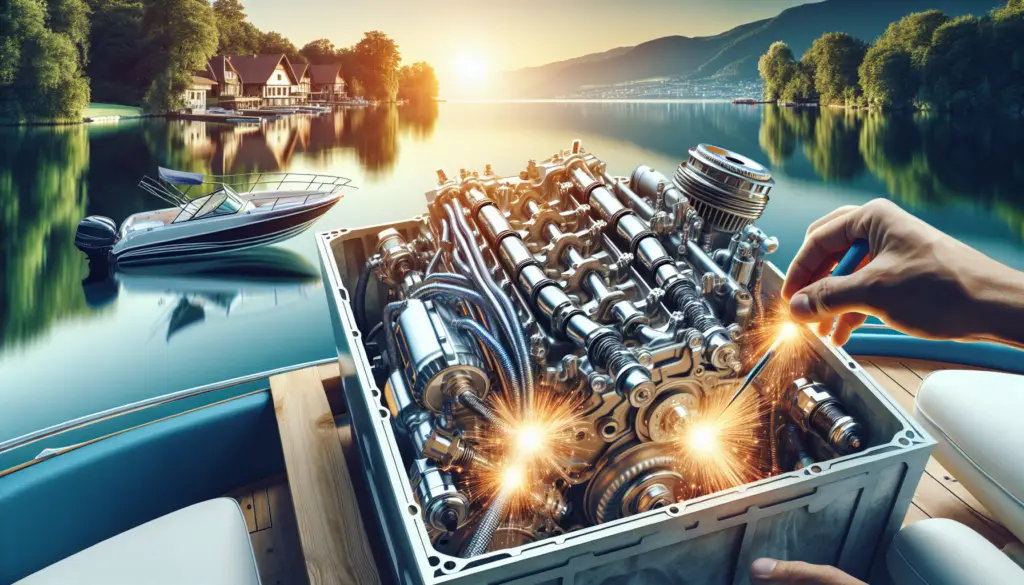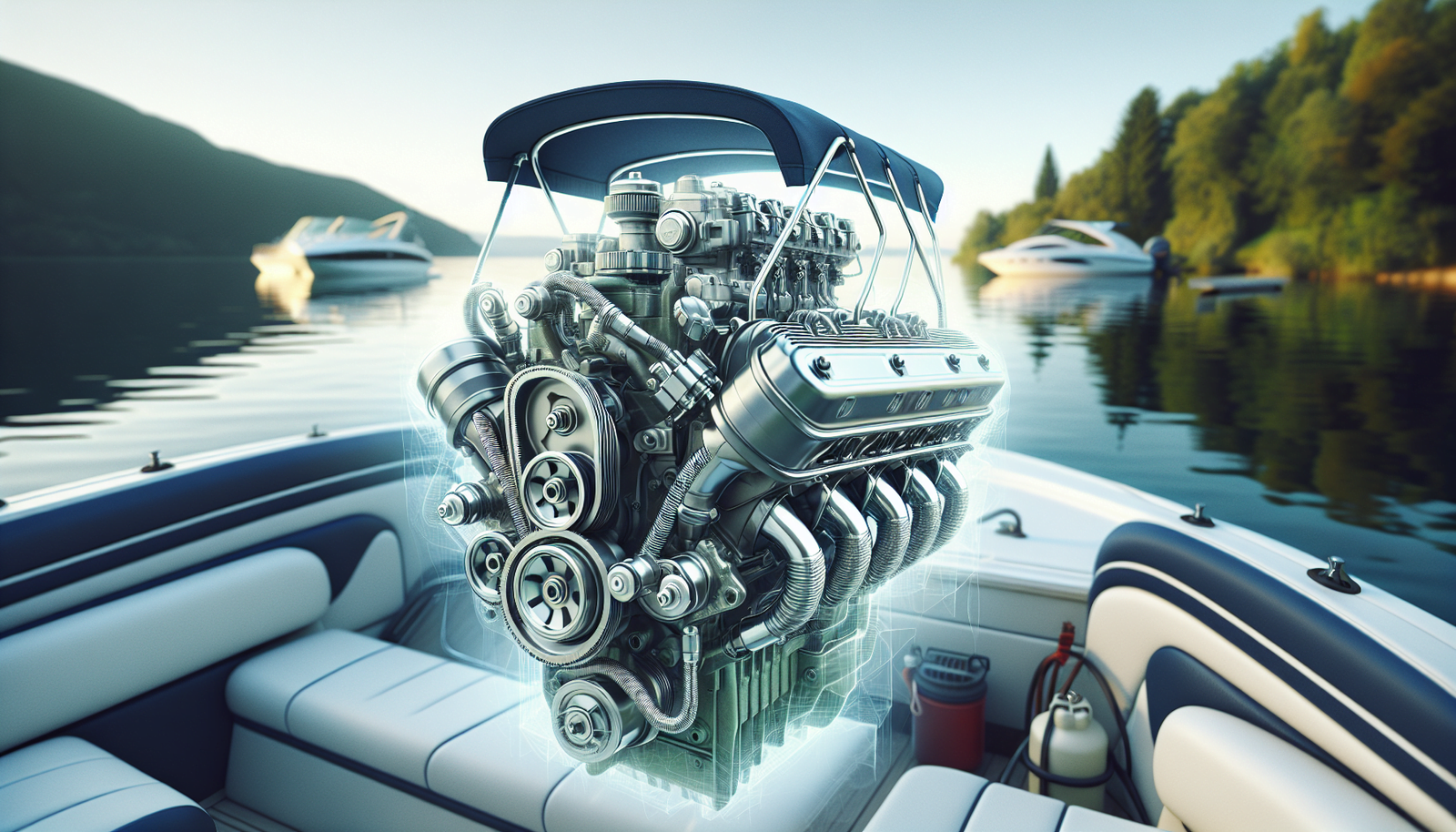Unlocking the secrets to a smoother sailing experience, this is your guide to the top five maintenance tips for recreational boating engines. Little known to many, these seemingly unassuming strategies can significantly prolong your engine’s life and, in turn, enhance your overall boating experience. Encased in these pages, you’ll find the knowledge to keep you coasting effortlessly across the water while your recreational boat purrs like a well-tuned machine. Prepare to become the captain of your boat’s engine maintenance by exploring these crucial, yet straightforward tips.

Understanding Basic Boat Engine Types
Owning a boat comes with a tremendous sense of joy and responsibility. A crucial part of this responsibility is understanding the type of engine your boat has, as different engine types require different kinds of care and maintenance. Generally, boat engines fall into three categories: Outboard engines, Inboard engines, and Stern Drive engines.
Outboard Engines
Outboard engines are those that you find situated outside the hull of the boat. These engines are popular because of their compact size and high performance. They are also known for being lightweight, making them suitable for small vessels. Moreover, they are designed to tilt out the water when not in use, minimizing any risk of damage from corrosive marine elements.
Inboard Engines
As the name suggests, Inboard engines are installed inside the hull of the boat. If your vessel has a larger length or weight, this type of engine is likely to be the one for you because of its superior horsepower. Known for their durability and power, inboard engines drive a fixed propeller via a shaft going through the bottom of the boat.
Stern Drive Engines
Stern Drive Engines, often referred to as Inboard/Outboard engines, combing the traits of inboard and outboard engines. They have the mechanics of the inboard engine while being located at the stern or rear end of the boat, pretty much like where an outboard engine would be. They are prized for their better navigation at lower speeds and great maneuverability.
Acquiring Knowledge About Your Specific Boat Engine
Part of taking care of your boat is learning more about their specific type of engine, and there are a variety of resources to help you acquire this knowledge.
Reading User Manuals
Your vessel’s user manual is an invaluable resource. It will provide you with detailed information about your engine’s model, its specifics, the compatibility of various parts, and so much more. Regularly referring to the manual can do wonders for you as a boat owner.
Attending Vessel Specific Tutorials
Online tutorials or workshops can be a wealth of knowledge. Look out for courses that deal with your specific engine type and learn from the experts. These tutorials can include visual guides on parts of the engine, troubleshooting common issues, and delivering safe and effective maintenance.
Joining Online Boating Communities
Join online boating communities or forums related to your specific engine type can be a gold mine of practical information. You’ll find other boat owners who have encountered similar issues, or you can ask questions and get advice directly from more experienced members in the community.
Regular Inspections
Regular inspections are a crucial part of maintaining your boat engine. They help to spot and address minor issues before they become costly repairs or replacements.
Checking the Engine Oil
Engine oil is an essential part of a system that ensures the engine runs smoothly. Regularly check your boat’s engine oil to make sure it’s at the recommended level and change it as needed.
Checking for Leaks
Inspect your engine for any leaks. Any leakage can lead to significant engine damage or cause environmental destruction. If you see any signs of leaking oil or fuel, it’s important to address it immediately.
Examining the Engine Belts
Taking care of engine belts is also crucial. Look for any signs of wear or damage like fraying, cracks, or looseness. Damaged belts can affect the engine’s performance and could lead to a sudden breakdown.
Keeping Your Engine Clean
A clean engine means a functional one. Ensuring your engine is free of debris and buildup is a crucial part of maintenance.
Cleaning the Engine Room
The engine room needs regular cleaning to prevent dirt and debris from getting into the engine parts. This can also help you spot any issues like leaks or rust.
Cleaning Engine’s Exterior
Similarly, the exterior of the engine should also be kept clean. This can prevent corrosion and ensure the engine’s cooling system works properly. Use a soft brush and suitable cleaning products to keep the exterior shining.
Frequent Fuel Clean-Up
Fuel can often contain contaminants that might harm your engine. Regularly emptying and cleaning your fuel tank can help improve your engine’s performance and extend its lifespan.

The Role of Regular Oil Changes
Just like a car, your boat engine needs regular oil changes. The oil lubricates the engine parts, reducing friction and preventing damage caused by heat and wear.
Understanding the Importance of Changing Oil
Dirty oil can accumulate particles which can cause extensive damage to your engine. Changing your engine oil frequently ensures your engine remains clean and functioning optimally.
Learning When to Change Oil
Check your boat’s manual or consult an expert to know when you should change the oil. While some engine types require oil changes every 50-100 hours of operation, others might need it after 200 hours.
Using High-Quality Marine Oil
Your engine needs specific, high-quality marine oil designed to withstand the unique conditions it operates under. Using the right oil ensures optimal performance and prevents premature wear.
Maintaining the Cooling System
keeping your boat’s engine at the correct temperature is crucial for its performance. Here’s how you can care for your cooling system.
Understanding the Importance of a Healthy Cooling System
A cooling system keeps your engine from overheating. An overheated engine can cause severe damage, reduce performance, and even stop the engine from working.
Looking for Signs of Rust or Corrosion
Regularly inspect your cooling system for rust or corrosion. These can hinder proper functioning of the system.
Using Fresh Water to Flush the System
After every outing, flush your engine with fresh water. This prevents the buildup of salt and minerals, which can cause corrosion in the cooling system.
Caring for the Fuel System
Your engine’s performance also depends on a healthy fuel system. Regular care and checks can help prevent common fuel system issues.
Regular Cleaning of the Fuel Filter
Clean your fuel filter regularly to ensure optimal performance. A clogged filter can decrease engine power, cause it to run unevenly, or even stop it from running altogether.
Avoiding Ethanol Based Fuels
Ethanol can damage older engine components and absorb water, which leads to fuel contamination. Always use ethanol-free fuel, or use a fuel stabilizer if you have to use ethanol-based fuel.
Using Fuel Stabilizers During Off-Season
If your boat will be idle for a long time, use a fuel stabilizer. This can prevent fuel from degrading and forming a varnish-like substance that can clog your system.
Battery Maintenance
A well-maintained battery acts as a reliable power source for your engine. Here are some tips to keep it in good condition.
Regularly Checking Battery Connection
Ensure that your battery connections are clean and secure. Loose or corroded connections can cause starting issues.
Keeping Battery Clean and Dry
Make sure the battery case and terminals are clean and dry. Excess moisture can lead to corrosion, while dirt can drain the battery.
Charge Battery Properly
Your battery should be fully charged before every outing. A properly charged battery will have a longer lifespan and provide reliable power for starting and operating your boat.
Outboard Engine Maintenance
Outboard engines require specific care. Keep an eye out for the following things to keep your outboard engine running smoothly.
Replacing Spark Plugs
Regularly check the spark plugs for signs of wear and tear. Replace them as per the manufacturer’s recommendations.
Winterizing the Outboard Engine
If you’re not using the boat during the winter, ensure to winterize the engine. This process keeps it safe from freezing temperatures, preventing cracks in the engine block or damage to other components.
Consulting with a Professional for Major Issues
Whenever in doubt or dealing with serious issues, consult with a professional marine mechanic. They have the knowledge and experience to troubleshoot and fix any major problems quickly and effectively.
Dealing with Common Engine Problems
Even with regular maintenance, you may face some common boat engine troubles. It’s important to tackle them promptly.
Troubleshooting a Hard Start
If your engine is hard to start, check the fuel system, battery, and spark plugs. These are common issues that can be easily addressed.
Addressing Overheating Issues
If your engine is overheating, check your cooling system. Ensure there is enough coolant, and the system is free of obstructions and corrosion.
Fixing Low Power or Loss of Power
A loss or reduction in engine power can be due to factors like a clogged fuel filter, dirty spark plugs, or issues with the propeller. Regular maintenance usually prevents these issues, but if they do occur, prompt attention can help you avoid more serious damage.
Owning a boat is a rewarding experience, but it comes with its Fair share of responsibilities. Understanding and maintaining your boat’s engine can go a long way in ensuring it remains functional for years. With the right knowledge and regular care, you can enjoy a seamless boating experience.

